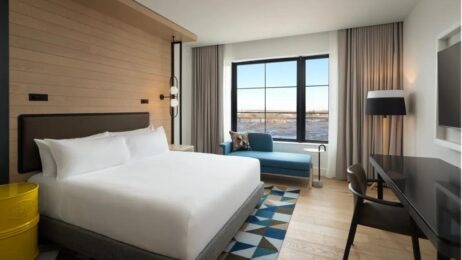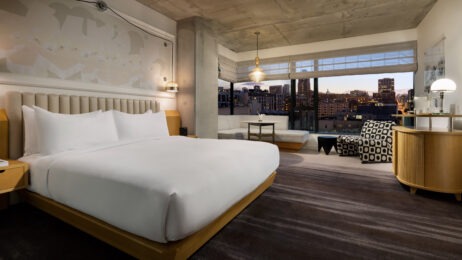More than half of meeting planners participating in a newly released survey said they will not return to a venue due to lack of professionalism and nearly half of them cite communications problems as why they chose not to submit an RFP to a venue.
These are among the findings in Cvent’s 2019 Planner Sourcing Report: Global Edition, a survey of 2,650 planners in North America, Europe, Asia, The Middle East and South Africa. Participants in the annual survey were unusually young this year: Twelve percent of those surveyed are from Gen Z (ages 18–24), 35 percent are millennials (ages 25–34) and 46 percent are from Gen X (ages 35–54).
What Planners Need from Hoteliers
The survey noted that respondents expect “transparency, professionalism and efficiency” when dealing with hoteliers and other venue staff.
“Even if a venue does not provide something we want, this should be clearly stated in their RFP response,” wrote one survey participant. “We do appreciate, however, when a venue applies lateral thinking to our needs and makes unexpected recommendations.”
The survey found:
- 59 percent will not return to a venue due to a lack of professionalism.
- 72 percent expect cost savings of at least 6 percent before considering making a switch to a second-choice venue.
- Almost 50 percent say they manage room blocks manually, but 59 percent would prefer a tech-driven solution.
- 45 percent rank event space and layout as the most influential element when selecting a venue.
- 44 percent say will not choose to submit an RFP to a venue due to communication problems.
Survey results indicate, however, that planners may now be more trusting of hoteliers in responding to RFP matters: 16 percent of respondents said trustworthiness is the primary RFP area that needs improvement, compared with 30 percent in 2018. The respondents singled out attention to detail (32 percent) and speed (20 percent) as the main areas that now need improvement.
“Overall, the message from this year’s Cvent Planner Sourcing Report is this: Planners are busy,” the report states. “They’re searching for hoteliers who provide a collaborative partnership that emphasizes speed, efficiency and an exceptional event experience.”
Heavy Workload
Other findings in the report indicate that planners are carrying a very heavy workload. Sixteen percent say that they manage 100 or more events per year, 37 percent organize 50 or more events each year and 69 percent plan 11 or more events per year. More than half of them say that attendance at most primary meetings has increased.
Eighty-one percent of those surveyed said they experience difficulties sourcing, from negotiations to research and RFP responses, with 80 percent of them saying that research is difficult due to the amount of time it takes and 69 percent saying they have difficulty comparing proposals due to the amount of time required.
Planners surveyed expect increases in their food and beverage, travel and venue budgets, but the report suggests that rather than providing relief, these will be needed to address rising costs.
“This reflects the practical reality that as the number of attendees at events increases, so too do costs associated with attendance, like food and beverage,” the report states.
Some Relief for Planners
One way that planners can lessen their workload is by utilizing outside resources.
“The reality of handling so many meetings and the need to deliver a great experience may be why the number of planners who seek assistance from third-party agencies, DMCs or CVBs is significant,” the report states. “Nearly half [of those surveyed] say they often or always work with external planning of destination-related organizations.”
Frequency of Planning Collaborations
Third-Party Planners
Never—20%
Rarely—17%
Sometimes—22%
Often—25%
Always—16%
DMCs
Never—27%
Rarely—17%
Sometimes—20%
Often—21%
Always—15%
CVBs
Never—22%
Rarely—17%
Sometimes—24%
Often—21%
Always—16%




